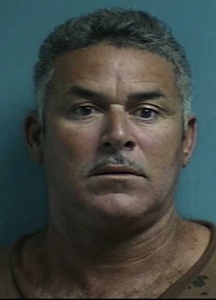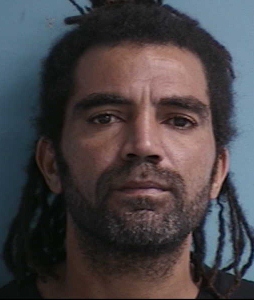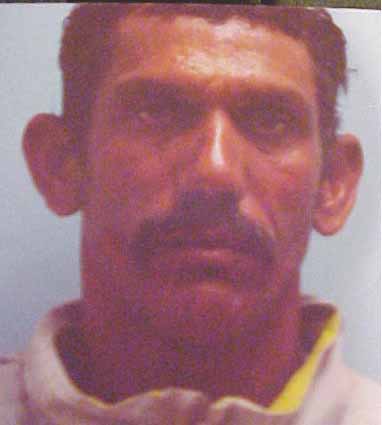Archive for August, 2012
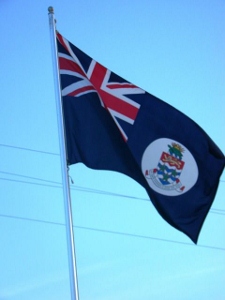
Facebook group queries Nation Building Fund
 (CNS): The founders of Cayman United, the social media activist group which emerged from the campaign against the expat tax, have written to government querying the premier’s Nation Building Fund. Joining the chorus of opposition to the controversial fund, which this year amounts to some $4.5 million, the group has questioned why the money has not been distributed among other appropriations dealing with the same issues that appear to have been cut. One of the primary goals of the group is to keep government accountable to the people and, starting as they mean to go on, they are demanding answers from their elected leaders on the budget.
(CNS): The founders of Cayman United, the social media activist group which emerged from the campaign against the expat tax, have written to government querying the premier’s Nation Building Fund. Joining the chorus of opposition to the controversial fund, which this year amounts to some $4.5 million, the group has questioned why the money has not been distributed among other appropriations dealing with the same issues that appear to have been cut. One of the primary goals of the group is to keep government accountable to the people and, starting as they mean to go on, they are demanding answers from their elected leaders on the budget.
In an effort to inspire other members of the public to seek further information and determine for themselves whether or not the proposed spending plan is in the best interest of Cayman, Cayman United intends to continue scrutinizing this year’s budget, which was finally approved by the UK on Friday evening.
In a letter to the premier, sent by email on Friday, the group said it had identified 26 line items in the appropriations bill for the 2012/13 budget aside from the Nation Building Fund that they felt would fall into the category of nation building, as described by the premier.
“These include initiatives such as national disaster preparedness and response, scholarships and other educational assistance programmes, youth and sports programmes and preservation of national heritage, arts and culture,” the group wrote.
“These twenty-six initiatives fall under the responsibilities of five separate government departments. With the exception of the Ministry of Education, Training and Employment, all of these departments have been asked to reduce their nation building activities.
Considering the summation of cuts and reductions across these twenty-six initiatives, the five affected departments have been asked to reduce their nation building activities by more than $500,000.”
The group pointed out that this was in sharp contrast to the 50% increase to $4.5 million from $3 million of the transfer payment number 52, which is the promotion of nation building, also known as the Nation Building Fund.
With the 26 items all well-defined programmes and initiatives that can be described as nation building, Cayman United asked the government why it believes the ideal of nation building is best achieved through the Office of The Premier and an ambiguously titled fund.
“Would it not perhaps be more productive to proportionately distribute $4.5 million across the various initiatives which strive for this same ideal?” the group asks in their correspondence to McKeeva Bush, who has vigorously defended this particular controversial line item.
Critics on the opposition benches and the wider community at large have referred to the fund as a "slush fund" and it is understood that the auditor general will be examining the fund when he takes a close look at government’s transfer payments.
Bush spent some time defending the allocation during his closing remarks in last week’s budget debate, claiming that helping churches with youth projects or building hurricane shelters that can also be used as community centres was far more cost effective than having government build a separate shelter, which would be closed up when not in use.
He said the money given to young people who could not get scholarships through the Education Council or money spent on training initiatives was cheaper than the cost to government if those young men ended up in jail.
The premier maintained during his debate that the reasons why it should be under his office was because he had always been “a social thinker” and because he was the minister of finance.
“They can dig all they want but I am not cutting these church-based programmes,” Bush told the Legislative Assembly last week.

FCU gives back cash in quashed drug case
(CNS): The Financial Crimes Unit handed back several thousand dollars to a 28-year-old man from West Bay last week after a seizure order was revoked by the courts. Following a successful appeal in June against a drug dealing conviction, Eduardo Swaby-Gutierrez got his money back when the FCU was forced to apply to the Grand Court to have their own seizure order revoked. In October last year Swaby-Gutierrez was convicted in Summary Court of possessing 21 grams of cocaine with intent to supply and given a twelve year jail sentence. However, the conviction was overturned on appeal, as a result of missing evidence, and replaced with simple possession.
Defence Attorney Peter Polack, who had successfully argued the appeal this summer, said the seizure was based on his client being found guilty of intending to supply drugs.
“The original seizure order was entirely predicated on the conviction. When the conviction was quashed the Financial Crime Unit and Customs had no recourse but to facilitate return of the funds. To be fair, neither the Customs nor the unsuspecting Financial Crime Unit were aware their hard work would be for naught due to the missing evidence,” he added.
Swaby-Gutierrez was found guilty by former Chief Magistrate Margaret Ramsey-Hale, who had relied on particles of evidence to convict him that she assumed to be cocaine. However, it was later revealed that they had never been analyized or confirmed to be a controlled drug or even handed to the court as evidence.
As a result, Justice Alex Henderson overturned the drug dealing conviction and changed it to the lesser charge of possession. Swaby was then given a sentence of seven months, which amounted to the time he had served since being convicted and was therefore released.
Related article:

60% of nothing
Some of our old laws are doing Cayman more harm than good. Our current hard economic times and high unemployment can’t all be blamed on the US economy and world recession. We have built blockades to progress right here on our own. Although our currency is tied to the US dollar at a fixed rate and we depend heavily on the US for our supply of tourists, investors and goods and services, we must also realize that in trying to protect ourselves from being overwhelmed from outsiders, we have written certain laws which have had the opposite effect and done ourselves a grave injustice economically.
Government has exhausted measures to increase revenue through taxes and fees and yet still searches for more ways to get a few more drops of milk from the cow. I would even suggest that if proper cost-cutting measures and downsizing of government took place that revenue would still be a primary concern.
Decades ago, protectionist laws were written which were intended to be beneficial to Caymanians and to give them a fair chance at making a decent living in their own country. Specifically, expats coming here to open businesses must have a Caymanian partner with 60% ownership and control of the company. Of course, very few expats were willing to take this gamble of giving a stranger in a foreign country total controlling interest in their ideas and hard work but some did take this gamble. For some it paid off but for most the relationship ended bitterly as you might expect. Also know that for this to be a legally formed 60/40 company, the Caymanian is obligated by law to come up with 60% of the funds needed to build stock and run the business. This law too is more often than not bypassed since the Caymanian doesn’t have that kind of money sitting around waiting for a foreigner to come along with a good idea.
We are seeing business closings now at an alarming rate. Some are of the 60/40 type while others are owned outright by Caymanians. I totally understand the sentiment and intentions of those who made these laws but now we can see that not only do they not work very well, they are unfair and often result in business failure or a block to inviting outsiders to attempt to open a business here.
I would suggest that this law be scrapped and replaced with a newer version which offers true opportunity for Caymanians and gives outsiders the incentive to want to come here and open businesses. The new law would state that an expat may come here and apply for a business license. Approval will be decided by a board on several levels. First and foremost, the new law will state that at least 60% of the business will be staffed by Caymanians at all times. Proper training by the business owners will be necessary in some cases to assure his workers are up to the standards needed by the company. The review board will also determine if the business is needed or wanted in the community or if it will be able to unfairly compete with and hurt existing local businesses. Healthy competition will be invited but on a level playing field which helps rather than hurts existing business. It would not be advantageous to have a Wal-Mart or Target come here and put all the smaller stores out of business. Discretion must be used as to which companies are allowed or refused in building the look and feel of our community.
This 60% requirement for Caymanian workers acts with the same intention of the original protection law but instead of giving one Caymanian controlling interest in a company he knows nothing about, we now accomplish two very important things. First, we have removed the blockade which kept foreigners from wanting to come here to open a business, and second, we now have the assurance of many more jobs for ordinary Caymanians. They will be trained where training is needed and they will be able to make a decent living. The added bonus is that there would be an increase in the number of work permits by virtue of more existing businesses, which is one of the pillars of government revenue.
We all say that the civil service is bloated and far too big for the size of government we need. The best way to downsize the civil service is to make it more lucrative financially to work in the private sector. With an open door business policy, there will be high demand for locals in the private sector in order to meet the 60% rule for Caymanian employees. There will be competition for local labor and wages will be higher by demand for the best employees. Civil servants will migrate to the private sector for better wages and benefits.
Another way to see this is to look at the US – Mexican border problem. Mexicans cross illegally into the US in search of jobs. You can be sure that if Mexico suddenly was creating more jobs than the US that illegal immigration would flow in the opposite direction. Mexicans would cross back to their homeland and build a wall to keep the US citizens from crossing illegally into their country in search of work.
You catch more flies with honey than with vinegar. This pretty much says it all about the current 60/40 rule. We are trying to catch flies with vinegar and it doesn’t work. Let’s remove this barrier to economic growth and try some honey to see how that works.

Sea ice retreats to furthest point on record
 (The Independent): The news that came yesterday should be, environmental campaigners said, a global wake-up call. The ice cap covering the top of the world is now smaller than it has been at any point since scientists started to measure it precisely from space. Satellite data released last night show that the sea ice floating on the Arctic Ocean has reached a record low, retreating further than it has done since detailed records began more than 30 years ago. The US National Snow and Ice Data Centre in Boulder, Colorado said that the 2007 record was broken on Sunday with two or three weeks of the melt season still remaining, suggesting that this year's sea ice will retreat substantially further than at any time in the satellite era.
(The Independent): The news that came yesterday should be, environmental campaigners said, a global wake-up call. The ice cap covering the top of the world is now smaller than it has been at any point since scientists started to measure it precisely from space. Satellite data released last night show that the sea ice floating on the Arctic Ocean has reached a record low, retreating further than it has done since detailed records began more than 30 years ago. The US National Snow and Ice Data Centre in Boulder, Colorado said that the 2007 record was broken on Sunday with two or three weeks of the melt season still remaining, suggesting that this year's sea ice will retreat substantially further than at any time in the satellite era.
The snow and ice centre said that the surface area of the Arctic Ocean covered by floating sea ice fell to 4.10 million square kilometres (1.58m square miles), which was 70,000 square kilometres below the previous record minimum of 4.17 square kilometres set in September 2007.
This means that since 1979, when satellite readings began, the six lowest sea-ice extents have all occurred in the past six years, from 2007 to 2012. The sea ice retreat was particularly rapid this August and may have been exacerbated by an intense storm over the Arctic region.
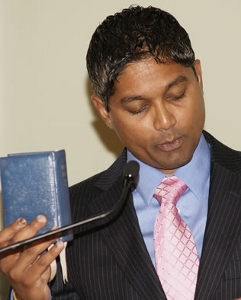
Trinidad minister fired for refusing breathalyser
 (CNS): Trinidad and Tobago’s prime minister has fired her junior national security minister in the wake of his arrest at the weekend after he refused to take a breathalyser test. Just hours after Collin Partap was detained by the police, Kamla Persad-Bissessar stripped him of his post. In a brief statement the prime minister said that she had advised the country’s President, Professor George Maxwell Richards, to revoke the appointment of Partap as a result of reports received from the national security ministry and from Partap himself.
(CNS): Trinidad and Tobago’s prime minister has fired her junior national security minister in the wake of his arrest at the weekend after he refused to take a breathalyser test. Just hours after Collin Partap was detained by the police, Kamla Persad-Bissessar stripped him of his post. In a brief statement the prime minister said that she had advised the country’s President, Professor George Maxwell Richards, to revoke the appointment of Partap as a result of reports received from the national security ministry and from Partap himself.
“I have decided to advise the President of the Republic of Trinidad and Tobago, His Excellency Prof George Maxwell Richards, to revoke the appointment of Minister Collin Partap with immediate effect. This decision was made subsequent to reports received from the Ministry of National Security and Mr Collin Partap,” Prime Minister Persad-Bissessar stated.
According to media reports from Trinidad, the former minister was stopped by officers in Port of Spain because they had seen him with a bottle of alcohol before he got into the driver’s seat of his car. Police say Partap refused to give a breathe test and was taken to the Belmont Police Station, where he contacted his lawyer and continued to refuse the test until more than an hour after he was detained but was then found to be within the legal limit.

UK asks for overdraft cut
 (CNS): Although the UK has allowed the Cayman Islands government to temporarily more than double the $27 million overdraft it had appropriated under the two month stop-gap budget in June to a whopping CI$66 million, the director of the Foreign and Commonwealth Office has said it must be dramatically cut within less than six months. Colin Roberts told the premier by email that the temporary borrowing must be reduced down to $15 million by 1 February of next year. The premier read out correspondence from Roberts to the Finance Committee on Friday afternoon, in which he confirmed that the UK had finally accepted the CIG’s budget for 2012/13.
(CNS): Although the UK has allowed the Cayman Islands government to temporarily more than double the $27 million overdraft it had appropriated under the two month stop-gap budget in June to a whopping CI$66 million, the director of the Foreign and Commonwealth Office has said it must be dramatically cut within less than six months. Colin Roberts told the premier by email that the temporary borrowing must be reduced down to $15 million by 1 February of next year. The premier read out correspondence from Roberts to the Finance Committee on Friday afternoon, in which he confirmed that the UK had finally accepted the CIG’s budget for 2012/13.
Bush said the terms and conditions that came with the budget approval were not new as the government was aware that it would be conditional on these four requirements, though he did not state why he had not revealed this prior to the announcement on Friday afternoon.
In his email to Bush, sent on behalf of OT Minister Henry Bellingham, Roberts points tothe need for the Cayman government to follow the agreement. “I would like to reiterate the importance the minister attaches to the delivery of the fiscal plans,” Bush read from Roberts' email.
“We all knew the hard work that had to be done and our strategy in bringing the budget has paid off,” Bush said as he hit out at his critics who had said he should not have brought the budget until he had UK approval.
Before Finance Committee started, the deputy premier lauded Bush for what she said was his “exemplifying leadership role” during what she described as “the most strenuous and trying and complexing time.”
Speaking, she claimed, on behalf of the government members as well as her constituents and what she said was the wider public, Juliana O’Connor Connolly said it would be remiss of her not to express admiration and congratulations to the premier for following his gut feeling and delivering the budget.
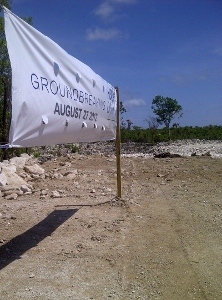
IT key to Shetty hospital
 (CNS): The renowned Indian heart surgeon behind the planned development of a health city in the Cayman Islands said that information technology would play an important part in making the hospital one of the best and safest in the region. Speaking at the groundbreaking ceremony for the first phase of the project at High Rock in East End on Monday, Dr Devi Shetty said that he hoped the facility would be the first paperless hospital, where technology would be used to assist with diagnosis and to allow remote monitoring of patients from India during the night shift in Cayman. Dr Shetty told the group of dignitaries and guests gathered for the official start of the medical tourism project that hospitals in general were not very safe places and even in the west people died due to errors.
(CNS): The renowned Indian heart surgeon behind the planned development of a health city in the Cayman Islands said that information technology would play an important part in making the hospital one of the best and safest in the region. Speaking at the groundbreaking ceremony for the first phase of the project at High Rock in East End on Monday, Dr Devi Shetty said that he hoped the facility would be the first paperless hospital, where technology would be used to assist with diagnosis and to allow remote monitoring of patients from India during the night shift in Cayman. Dr Shetty told the group of dignitaries and guests gathered for the official start of the medical tourism project that hospitals in general were not very safe places and even in the west people died due to errors.
He said that when health staff use iPads instead of paper, the mistakes can be cut by half.
The doctor said that in less than ten years software would be common place everywhere in the diagnosis of patients alongside doctors, reducing the margin for error, but the plan would be to introduce that type of technology at the Cayman Islands hospital as soon as possible. The use of technology, he said, could also help monitor the machines keeping people alive in an intensive care unit in Cayman at night by day shift staff that would be fresh and awake miles away in India.
While the goal of the Shetty hospital is to reduce the cost of health care compared to North America, the hospital would become well known, not because the care was less expensive but because it was the safest and the best quality of care, according to Dr Shetty, who will perform the first surgery at the new facility.
Describing the benefits of the health city, the Indian surgeon said local people would have access to high quality care at a reduced cost locally, saving lives. Shetty said people usually die from a heart attack within the first hour and for people in Cayman that is more often than not when they are on the air-ambulance on the way to a hospital to save their lives.
While some 300 workers are expected to be involved in the construction part of the project, Shetty spoke about the medical vacancies that would existin the future as he promised those young Caymanians who were already studying or wanting to study medicine a job at the hospital.
He said that the medical visitors that wouldl be attracted to the facility would stay longer in Cayman and spend more money than regular tourists, benefitting the local economy. While people think about water sports now when they think about the Cayman Islands, he said, in future they would be thinking about Cayman when they have chest pains or creaky joints.
The groundbreaking event marking the start of the project was for a 140-bed tertiary care hospital due to open in November 2013. A joint venture between Shetty’s Narayana Hrudayalaya Hospitals of India and Ascension Health Alliance, a non-profit healthcare organization in the United States, the goal is to bring high-quality, low-cost healthcare to Cayman.
A US$2-billion project of the 2,000-bed health city is to be built in phases over 15 years on a 200-acre site and will eventually include a tertiary-care hospital, an educational facility, a biotech park and an assisted living community. The multi-specialty hospital will provide services not widely available in the region, such as open-heart/bypass surgery, angioplasty, heart-valve replacement, cancer treatment, bone-marrow transplant, nuclear medicine, organ transplant, and orthopaedics.
Clan Construction, a Cayman-based construction company, was hired earlier this year as the main contractor on the project and up to 300 local workers will be needed for the construction of the first phase of the $50 million project, which is expected to take 14 months to complete.
As well as the groundbreaking, an official website about the project has also been launched which gives details about the work available.

Suspect drunk-driver arrested after hit & run smash
(CNS): A driver who reportedly drove away from the scene of a road smash on Sunday evening was arrested by police on suspicion of DUI shortly after the incident a short distance away. An RCIPS spokesperson said that at about 7.50pm on 26 August two Honda motor cars were being driven North on West Bay Road. As one of the vehicles attempted to negotiate a right hand turn into Galleria Plaza, it was struck from behind by the second Honda. The driver and passenger from the first car were taken to hospital for treatment but later released.
The second car drove away from the scene of the crash but it was traced by police and the driver was arrested on suspicion of DUI. He was subsequently released on police bail while enquiries continue.

Police seek witnesses to street stabbing
 (CNS): A 20-year-old man has been arrested on suspicion of GBH following a stabbing that took place at a George Town bar early on Saturday morning and is currently in police custody. Police said Monday that they are looking for witnesses in connection with the incident that occurred sometime after midnight on Shedden Road in the vicinity of Archie’s Bar. An RCIPS spokesperson said that shortly before 12.30am on 25 August an injured man attended the Cayman Islands Hospital in George Town suffering from a number of stab wounds but was released from hospital following treatment.
(CNS): A 20-year-old man has been arrested on suspicion of GBH following a stabbing that took place at a George Town bar early on Saturday morning and is currently in police custody. Police said Monday that they are looking for witnesses in connection with the incident that occurred sometime after midnight on Shedden Road in the vicinity of Archie’s Bar. An RCIPS spokesperson said that shortly before 12.30am on 25 August an injured man attended the Cayman Islands Hospital in George Town suffering from a number of stab wounds but was released from hospital following treatment.
Anyone who was in the vicinity of Shedden Road and has any information which could assist the enquiry is asked to call George Town CID on 949-4222.
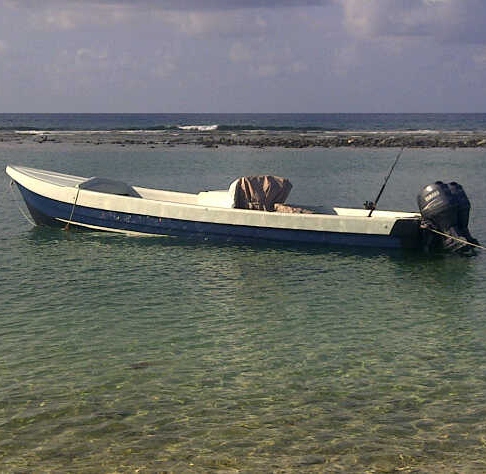
West Bay men on canoe heading for Jamaica missing
 (CNS): Three West Bay men and possibly two Jamaican nationals are missing at sea after leaving Grand Cayman on Sunday 19 August in a canoe heading for Jamaica. Police said the purpose of the trip has not yet been established. On Thursday 23 August, when the men had not returned to Grand Cayman, family members of James Michael Ebanks, Sidney Henry Ebanks and William Miguel Bush raised the alarm and reported the matter to police, since when the RCIPS Air Operations and Marine Units have been involved in an extensive search for the missing canoe. The RCIPS have made contact with the US Coastguard and Jamaican authorities and informed passing vessels to be on the lookout for the missing vessel.
(CNS): Three West Bay men and possibly two Jamaican nationals are missing at sea after leaving Grand Cayman on Sunday 19 August in a canoe heading for Jamaica. Police said the purpose of the trip has not yet been established. On Thursday 23 August, when the men had not returned to Grand Cayman, family members of James Michael Ebanks, Sidney Henry Ebanks and William Miguel Bush raised the alarm and reported the matter to police, since when the RCIPS Air Operations and Marine Units have been involved in an extensive search for the missing canoe. The RCIPS have made contact with the US Coastguard and Jamaican authorities and informed passing vessels to be on the lookout for the missing vessel.
Police said that two Jamaican nationals may also have been onboard, but this has not yet been confirmed.
The sea and air search has extended from Cayman Brac towards Jamaica. The canoe may have been sighted by the crew of a passing cargo ship late on Wednesday evening (22 August) approximately 17 miles south of Cayman Brac but it has not been established if this sighting was of the missing canoe.
The air and sea search was suspended over the weekend due to worsening weather conditions but resumed this morning.
An RCIPS spokesperson added that the delay in informing the public was down to a number of operational reasons. "On receipt of the report welaunched an extensive air and sea search as well as making partners in other jurisdictions and vessels in the area aware. The decision as to when to release details to the media is anoperational matter based on the circumstances and information available at the time,” she said.
